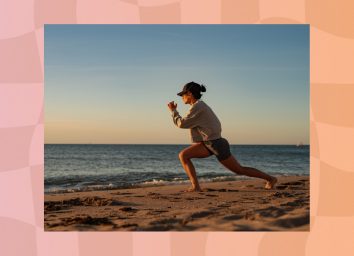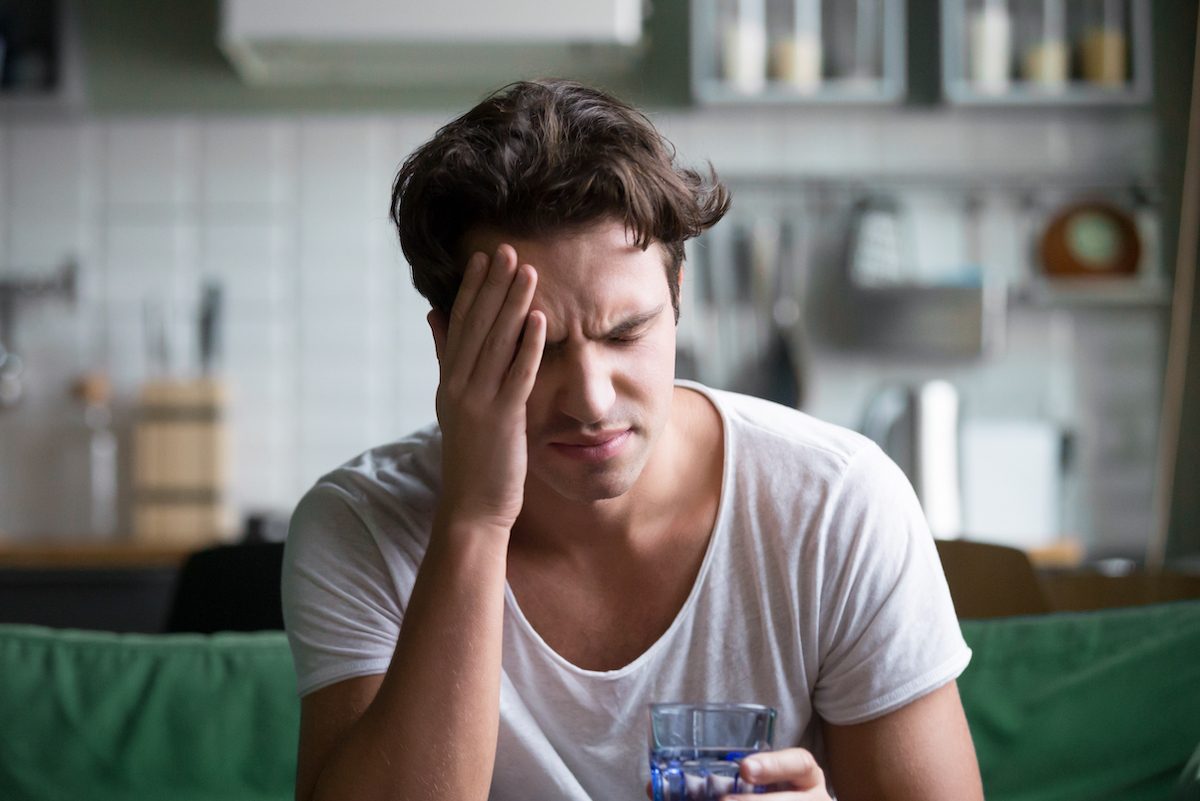
Exercise is typically the last thing on my mind when I’m hungover. Usually, my thoughts are more along the lines of “Why did tequila betray me again?” and “Will I be able to keep down this piece of toast?” But some people swear by a good workout to help stave off their hangovers—the logic being that they’ll “sweat out” their toxins at the gym.
However, this idea is more myth than scientific fact. There isn’t any hard evidence that exercise with a hangover will help you feel better. In fact, the opposite seems to be true, especially if you’re trying to do a long run or an intense fitness class. Don’t believe me? Check out these surprising side effects of exercising with a hangover. And for more intel, check out One Major Side Effect of Drinking a Glass of Wine, Says Science.
You’ll get even more dehydrated
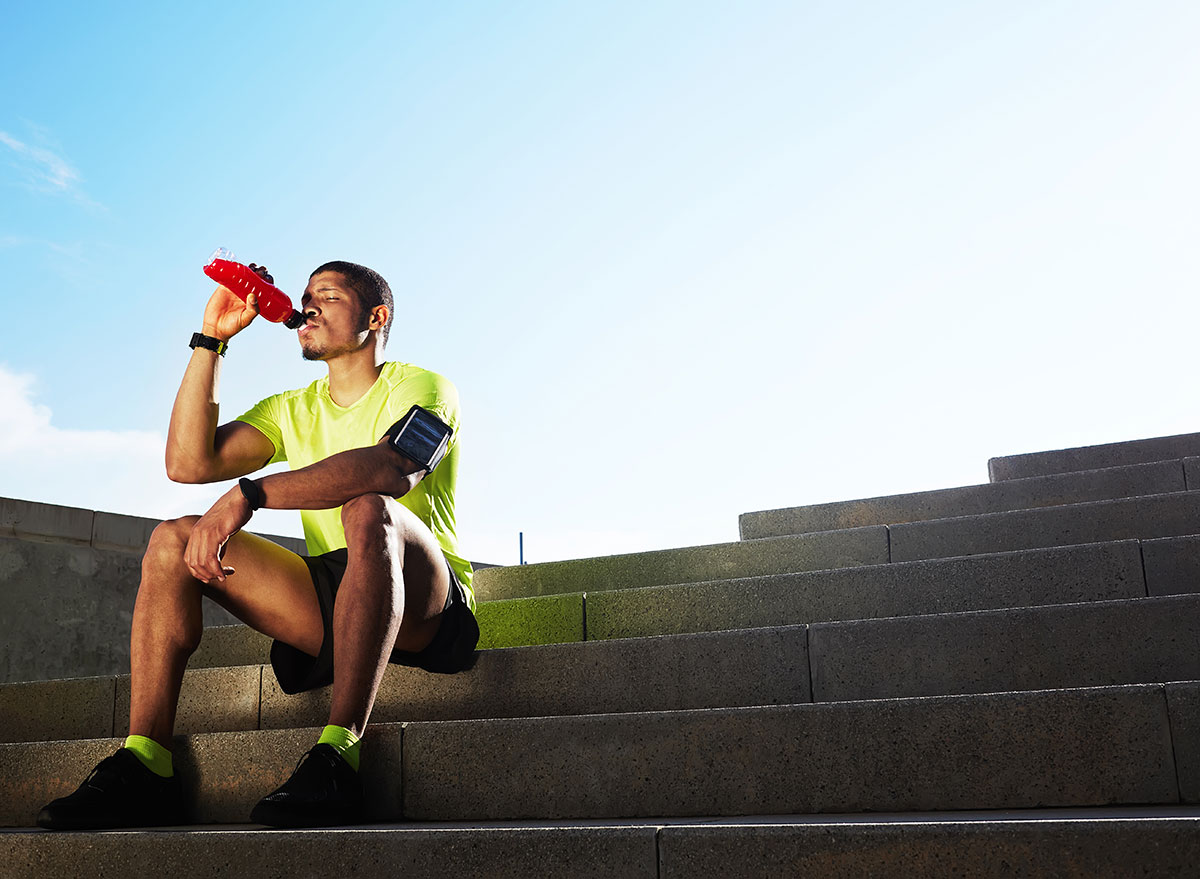
Many hangover symptoms—like headaches, exhaustion, and thirst—are caused by mild dehydration. That’s because alcohol consumption suppresses a hormone that helps regulate your fluids, making you pee more and lose more liquid. So pushing yourself to work out when you’re already dehydrated can potentially make you feel worse. Read more: Secret Side Effects of Drinking Alcohol, Says Expert.
You might hurt yourself
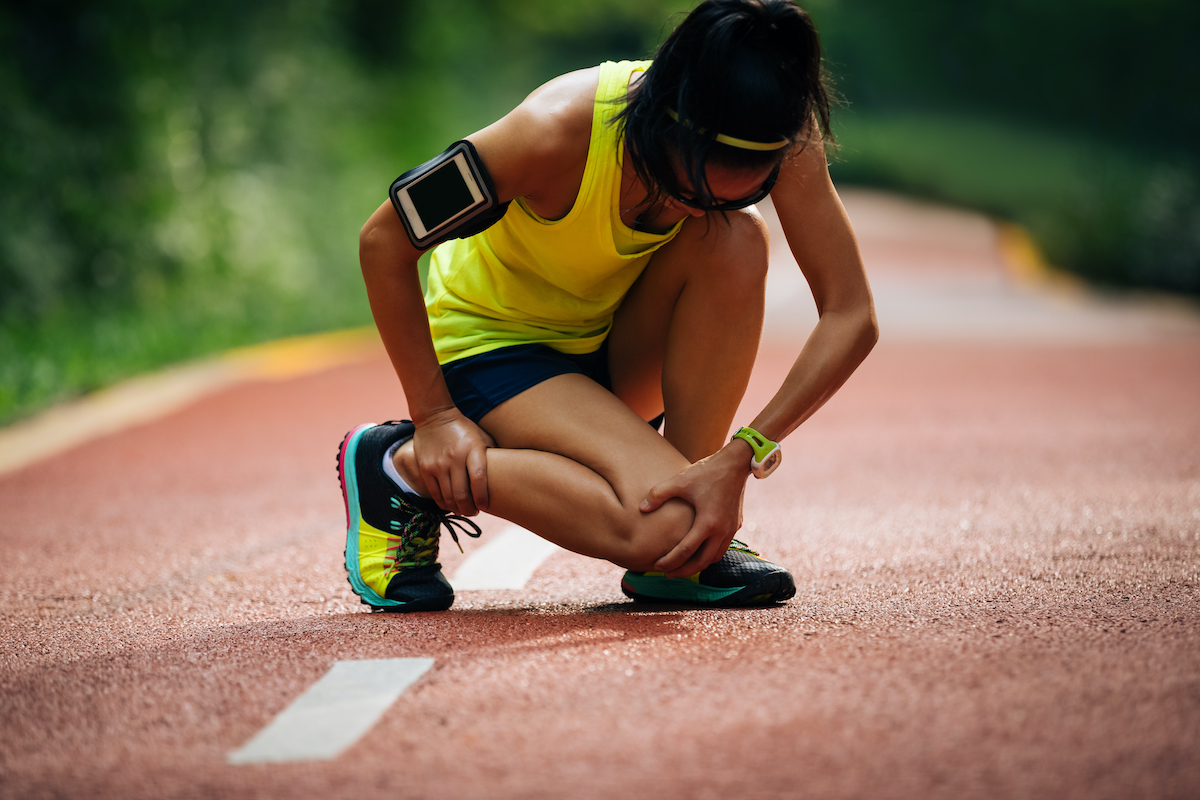
According to the Sleep Foundation, drinking alcohol before bed can disrupt REM sleep—aka the deep sleep cycles where you get your best rest. This can happen to some degree no matter how much alcohol you drink. A 2018 study in JMIR Mental Health found that even low amounts of alcohol consumption can affect sleep quality.
Not getting enough sleep, in turn, can make you more likely to injure yourself. “Working out when tired can increase your risk of injury—hamstring injuries often occur when a tired person tries to sprint,” Leon Creaney, a UK-based orthopedic physician, told Women’s Health UK. “Fatigued muscles can’t react as quickly either, so your coordination and agility are compromised, too.” For more sleep-related info, don’t miss: Nighttime Habits That Ruin Your Sleep, According to Science.
Or just become extra sore
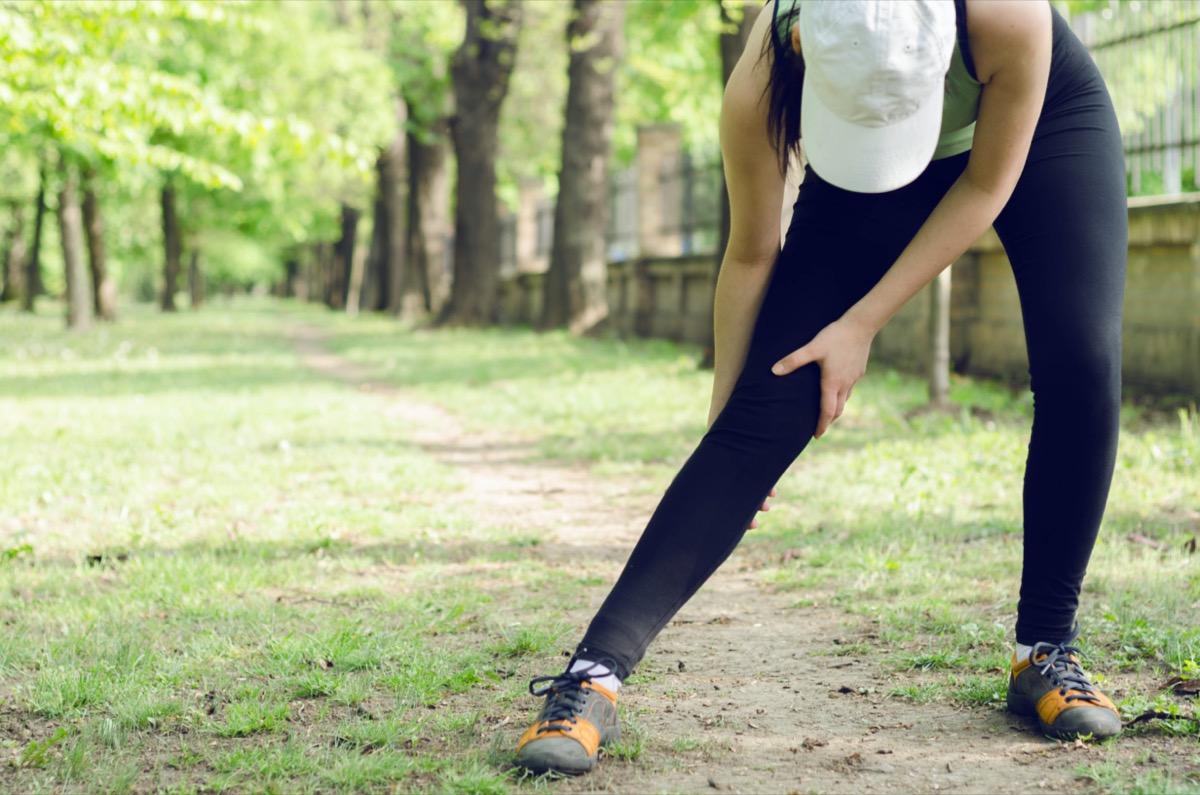
Going too hard at the gym while you’re hungover might make you super sore, too. Why? Well, alcohol is technically a toxin, and your body has to work overtime to expel it from your body. This temporarily changes your body’s normal processes to compensate. “Alcohol affects your normal physiology, leading to increase levels of creatine kinase and lactate in your blood, which can have detrimental effects on other organs and may cause increased muscle soreness,” Damion Martins, MD, a sports medicine physician, told Glamour.
You’ll have less stamina, too
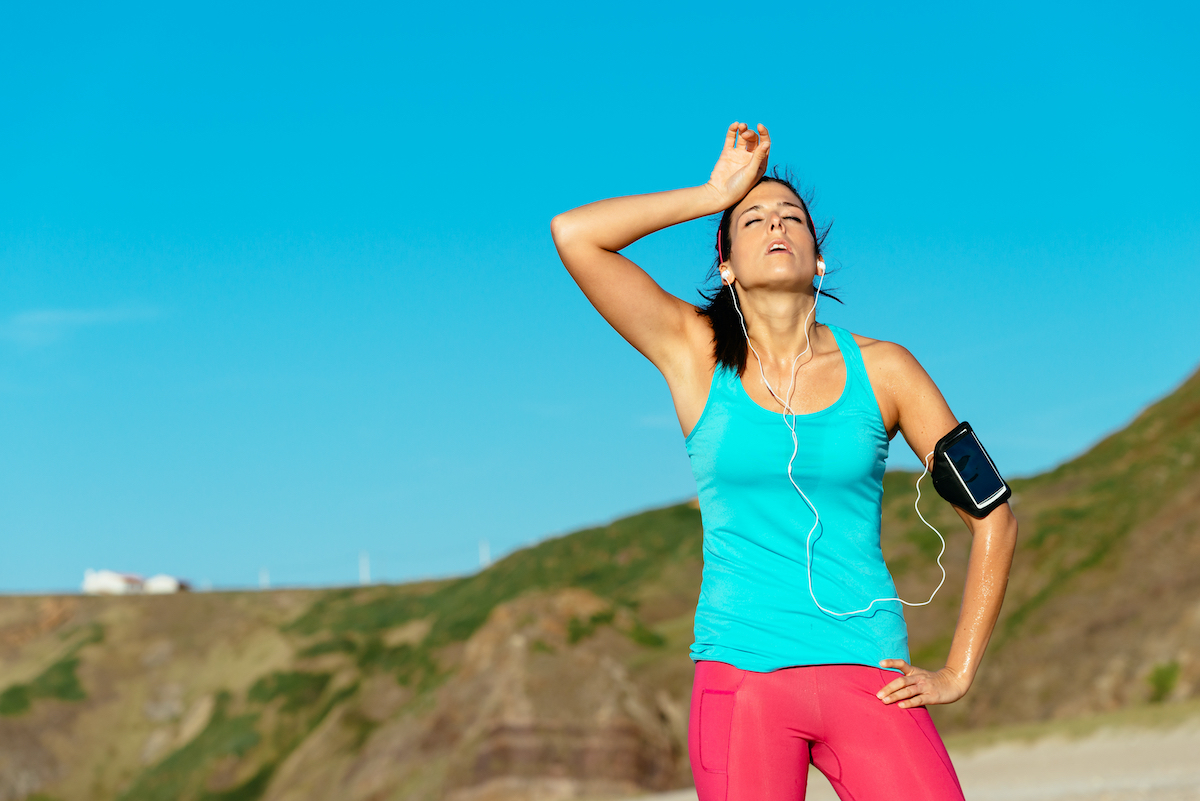
Even if you can get yourself out of bed and onto the treadmill when hungover, you likely won’t get that great of a workout anyways. A 2020 study published in the Journal of Clinical Medicine compared the performance of hikers who were hung over and hikers who were not. They found that hungover hikers were significantly more exhausted by the same amount and level of activity than the regular hikers. Basically, you can expect to have less endurance if you work out while hungover.
You might also not get the same beneficial results. A small 2014 study in PLOS One found that alcohol consumption before a workout affected athletes’ muscle protein synthesis (MPS) rates. MPS is basically how your muscles repair and rebuild themselves post-exercise. While this study was small (and thus not conclusive), the study authors wrote that their results seem to imply that alcohol “may therefore impair recovery and adaptation to training and/or subsequent performance.” Read more: This One Exercise Melts Fat Faster Than Any Other, Says Science.
However, gentler movement can help you feel better

That said, there are some exercises that can help support hangover recovery. “Avoid high intensity interval training or extremely strenuous workouts when recovering from a hangover,” Lynn O’Conner, MD, told NBC News, as those can dehydrate you further. She recommended walking or light jogging on a treadmill instead in order to reap the endorphin-boosting benefits of exercise without pushing yourself.
Before you workout (if you choose to do so), be sure to rehydrate yourself with water and electrolytes. Eat a snack with protein and carbs to refuel yourself too, since alcohol often depletes blood sugar levels. And if you’re still feeling nauseous, dizzy, or flat-out miserable, skip the gym and stay at home. You won’t gain anything by pushing yourself. Read more: Secret Side Effects of Walking Just 15 Minutes a Day, Says Science.

